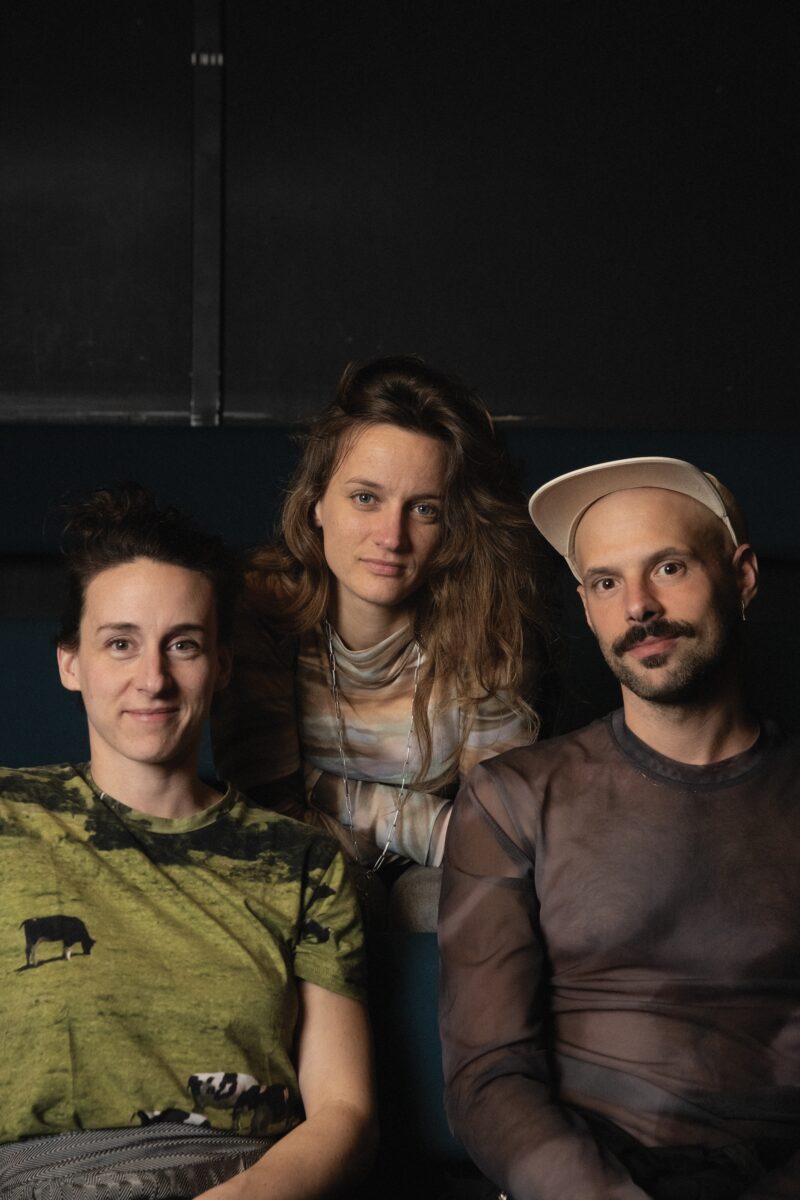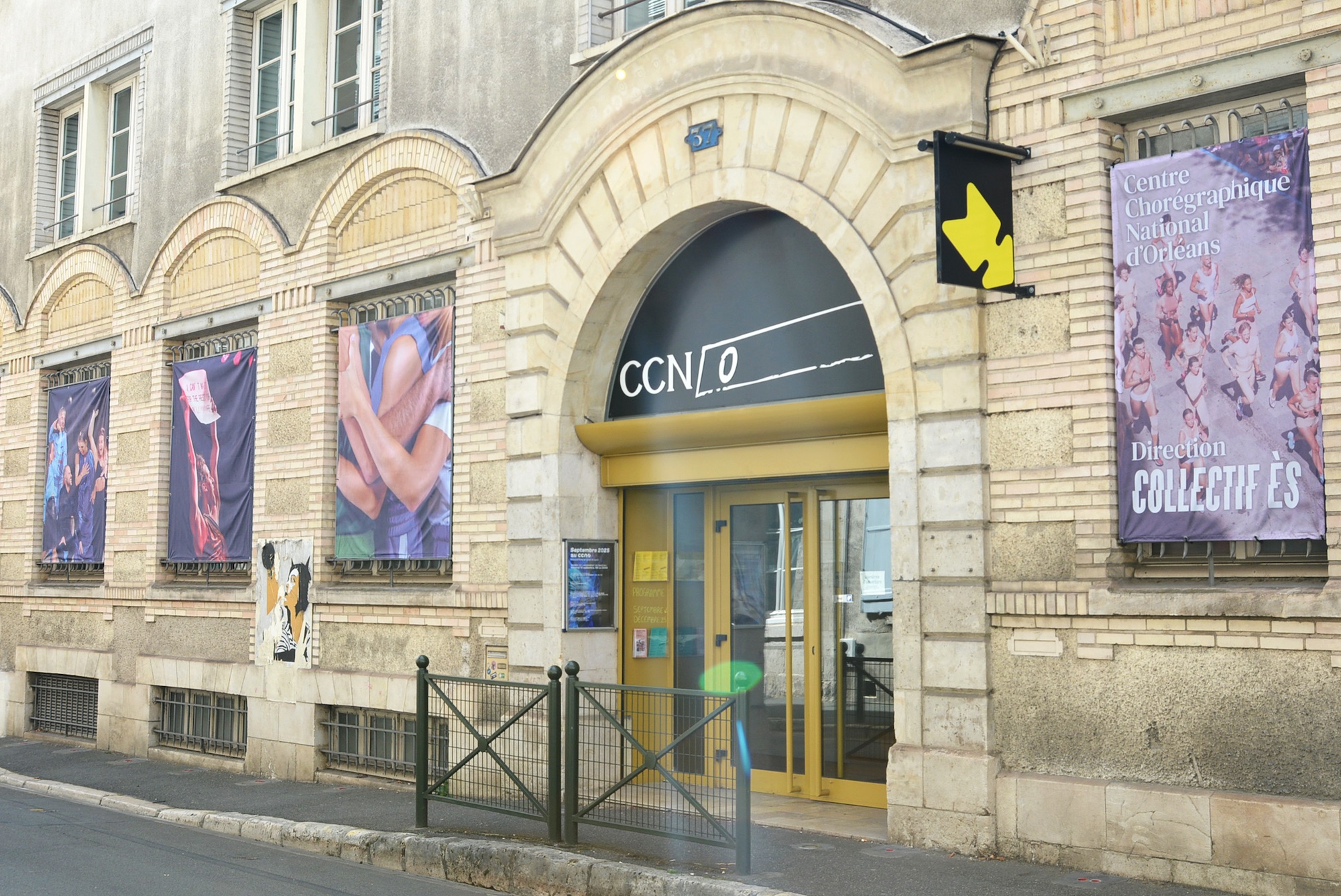Centre chorégraphique national d’Orléans (CCNO)

Direction Collectif Ès
We are Sidonie Duret, Jeremy Martinez and Émilie Szikora, and we have come together under the name Collectif ÈS. We are developing an artistic and cultural project that is deeply rooted in this collective challenge, which is at the heart of our artistic commitment, a tool for thinking and a breeding ground for creating.
ÈS is a preposition that means in regard to.
ÈS is always followed by a plural, so it is always followed by multiplicity – exactly mirroring the multiplicity we seek in the idea of a collective. Collectif ÈS was born out of a desire to search, investigate and explore chorographical language as a group of three.
Creating a live show means offering up our own experiences and what we, as living beings, have seen and lived through. Through this way of sharing, we create our own form of research, seeking a physical intensity that drives our bodies to commit absolutely and become fully inhabited. We pursue a desire to develop physical empathy, to inhabit bodies that communicate and exude the pleasure they find in being together. Our research is constantly nourished by our investigations into communication and group energy, by our need to function in a specific way, and by the social role these aspects play. The creative process is an opportunity to come together, work together, and question our relationship with others.
We see every new production as an opportunity to dig deeper and extend our research into what a collective is. We explored interchangeability with Jean-Yves, Patrick et Corinne (2017) by creating a trio for five performers. We started with three solos and created a group dance piece with 1ère Mondiale (2019). In 2021, Fiasco saw us use disagreement within a group as a creative driver. More recently, we examined spontaneity and encounters in SHOT (2022), by inviting three artists who did not know each other to create a collective, pop-up artwork in just three days.
Alongside our stage productions, we simultaneously developed our Série Populaire, which consists of four episodes: I Wanna Dance, Karaodance, Loto3000 and Jackpot. The series arose out of our desire to revisit well-known, codified and unifying events. We endeavoured to create mechanisms that would dilute the codes and blur points of reference in order to carry people into movement and put dance and the body at the center of the encounter.
We have been co-creating shows since 2011 by tackling, with a degree of self-mockery, themes such as utopia, discord, and the plagiarism and/or inheritance of popular cultural references.
In January 2025, we took over the direction of the Centre Chorégraphique National d’Orléans (CCNO) to develop a project that reflects our convictions: joyful, physical, popular and civic-minded. A utopian place where dances are made and shared, a place where people come to connect, dance and celebrate. As a large-scale deployment of our artistic line, the CCNO is becoming a living space for experimenting with these precious notions of otherness, collective momentum and coming together.
It’s a challenge as poetic as it is political, and one that we hope to share with as many people as possible.

The venue
The CCNO was founded in 1995 and joined the other CCNs that had been created since 1984. Choreographer Joseph Nadj was the first director until December 2016.
In 1999, Joseph Nadj created the Traverses festival, a multidisciplinary event that welcomed new choreographic perspectives, and explored diverse understandings of history and dance writing. The festival aimed to foster dialogue between dance, poetry, art history, performance, philosophy and circus arts.
In 2001, the CCNO moved to 37 Rue du Bourdon Blanc, the former offices of the La République du Centre newspaper, and the Institut d’Art Visuel. This former town house’s façade is listed as a historical monument. In 2010, the city of Orleans initiated extension works for the CCNO, to create new spaces, including a creation studio, a sound and video recording studio, a research studio, storage and set construction areas, and a costume-making area.
Press & medias
CS 42348
45023 Orléans Cedex 1
+33 2 38 62 41 00
https://www.ccn-orleans.com
